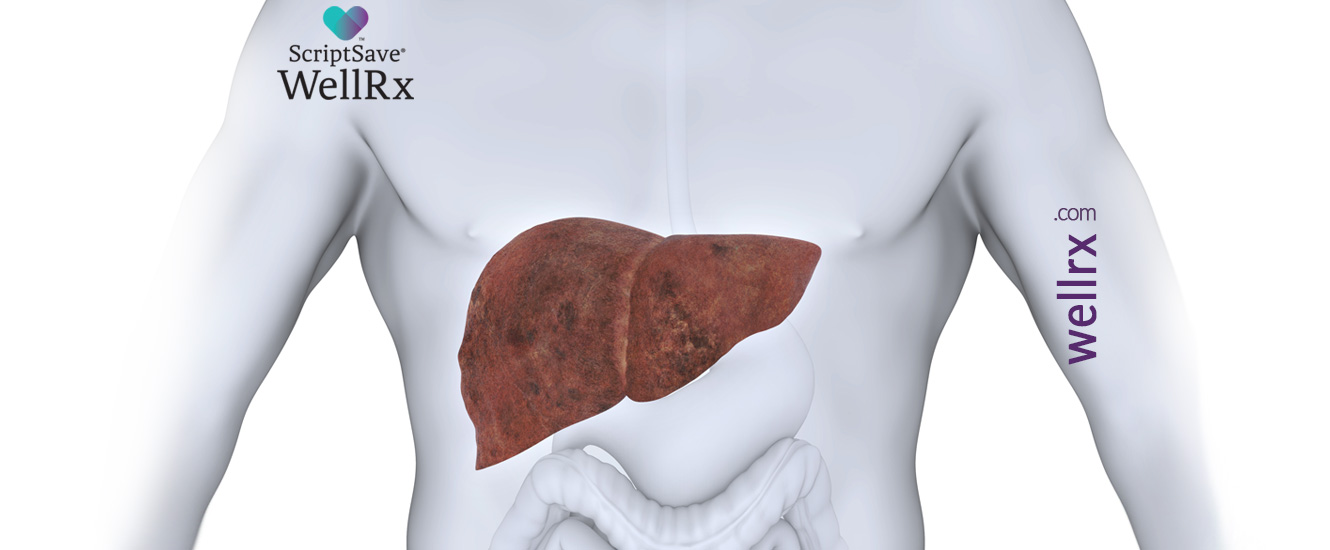Fatty liver disease is exactly what it sounds like: accumulations of fat in the liver. In more severe cases, fat accumulation can be accompanied by inflammation and even scarring of the liver. Fatty liver disease is a relatively common condition that can progress to cirrhosis and liver cancer over time if unaddressed. There are two types of fatty liver disease: alcoholic and nonalcoholic.
Despite a common tendency to equate liver disease with alcohol abuse, fatty liver disease can spring from a multitude of factors.
Obesity is well established as a condition associated with nonalcoholic fatty liver disease (NAFLD). In fact, fatty liver disease is considered one of several metabolic changes that occur with obesity, diabetes, and high lipid disorders. Specifically, a nonalcoholic fatty liver is often attributed to insulin resistance. It is also common for fatty liver to accompany hypertension.
Recent research has shed light on the relationship between exposure to toxic substances and fatty liver disease. Unfortunately, the chemicals implicated are more prevalent than one might assume: about one-third of common workplace chemicals are associated with fatty liver disease.
Certain medications have been shown to cause fatty liver disease. These include corticosteroids, certain antipsychotics and antidepressants, chemotherapy and hormonal agents, and antiarrhythmics. These drugs vary as to whether they affect the liver directly or indirectly. For example, some medications cause weight gain and insulin resistance, thus indirectly contributing to fatty liver disease.
Perhaps the most well-known cause of fatty liver disease, or any liver dysfunction, is alcohol abuse. Even normal drinkers can experience fatty liver disease if they drink heavily and consistently over a few weeks. “Significant alcohol consumption,” as relevant to fatty liver disease, is considered more than 21 drinks per week for men, and greater than 14 for women, over the course of two years.
About 90% of heavy drinkers have steatosis or fatty liver. The progression of the disease varies according to the individual’s willingness and ability to cease or curb alcohol consumption. Nonalcoholic fatty liver disease is also quite common. It is the most common liver disorder in Western countries. It is often diagnosed in middle-age individuals in their 40s and 50s, although it affects people of all age groups, including children. Fatty liver disease is more common in Hispanic populations and also more common in men than women. The demographics of this disease may be related to other confounding factors, such as socioeconomic status and geography, rather than a result of gender or ethnicity alone. Globally, it is estimated that the prevalence of fatty liver disease is about 25%.
Some healthcare professionals consider fatty liver disease to include the entire spectrum of pathology from a fatty liver to cirrhosis and liver cancer. This broad definition encompasses a wide range of symptoms. Many individuals with the more common and less acute types of fatty liver disease, both alcoholic and nonalcoholic, are asymptomatic. Some people might experience fatigue, malaise, and mild discomfort in their abdomen.
Because it is usually asymptomatic, fatty liver disease has no cardinal signs. Instead, it is often found incidentally from blood tests and imaging. The elevation of liver enzymes on routine labs may indicate fatty liver, initiating further exploration. However, not everyone with fatty liver disease has elevated liver enzymes. Fatty liver disease can also be seen on ultrasound and with a liver biopsy; the latter is much more invasive. Liver biopsies are not done unless liver disease is suspected; therefore, fatty liver often will be seen on an ultrasound intended to check for something else, like gallstones. No screening recommendations currently exist for fatty liver disease.
With fatty liver disease, the treatment is dependent on the cause. If it is related to behavioral causes such as drinking alcohol or food choices, fatty liver disease can often be resolved with cessation or modification of the behavior. Individuals seeking assistance in implementing a healthy lifestyle have various resources.
If medication is warranted, treatment is based on each individual. For those who have progressive fatty liver disease with inflammation, and who do not have diabetes, vitamin E is sometimes prescribed. For those experiencing fatty liver as a consequence of some other condition, such as metabolic syndrome, hypertension, or hyperlipidemia, treatment of the underlying condition will likely resolve the fatty liver disease.
Many people go through their lives with fatty liver disease and never address it because they don’t know they have it. The fortunate ones are those who are aware of it and can take action to control it. In many cases, fatty liver disease can be managed through lifestyle changes. Anyone diagnosed with fatty liver disease should work closely with their provider to determine the cause of it and to establish optimal management. If medication is necessary to treat it, prescription discount cards and coupons for medications are available. Programs like ScriptSave WellRx can help locate a pharmacy nearby and offer the best prescription savings.
The best ways to prevent fatty liver disease are to abstain from excessive alcohol intake and to maintain a healthy weight. Because genetic factors can contribute to fatty liver disease, for some people, not even the most stringent lifestyle choices can prevent fatty liver disease. For this reason, it is important to maintain an ongoing relationship with a primary care provider; regular physical checkups may lead to the detection of fatty liver disease through routine exams and monitoring, and guide individuals toward its resolution.
Nancy S, BSN, RN, CNOR is a freelance writer and nurse researcher. She develops and presenting on initiatives in clinical settings, such as general healthcare, sustainability in surgery, and creating clinical teaching modules for nurses through CUNY Hunter in New York. NS also authors a blog on vegan and vegetarian topics. She is also a trained Epic EMR SuperUser.
Resources:
https://www-uptodate-com.eresources.mssm.edu/contents/epidemiology-clinical-features-and-diagnosis-of-nonalcoholic-fatty-liver-disease-in-adults?search=fatty%20liver%20disease&source=search_result&selectedTitle=1~150&usage_type=default&display_rank=1
https://www.sciencedirect.com/science/article/pii/S2352345X15001009
https://www-uptodate-com.eresources.mssm.edu/contents/clinical-manifestations-and-diagnosis-of-alcoholic-fatty-liver-disease-and-alcoholic-cirrhosis?search=alcoholic%20fatty.%20liver%20disease&source=search_result&selectedTitle=1~37&usage_type=default&display_rank=1
https://www.ncbi.nlm.nih.gov/books/NBK547860/
https://www.ncbi.nlm.nih.gov/pmc/articles/PMC2563793/
https://www.wellrx.com/health-conditions/about/health-condition/liver-cirrhosis/~default/
https://www.wellrx.com/health-conditions/about/health-condition/alcohol-withdrawal/~default/
http://ns5hq7zn5a.search.serialssolutions.com.eresources.mssm.edu/?sid=Entrez:pubmed&id=pmid:28714183
https://www.wellrx.com/grocery-guidance/
https://www.wellrx.com/vitamin%20e/drug-information/
https://www.wellrx.com/health-conditions/about/health-condition/insulin-resistance-syndrome/~default/
https://www.wellrx.com/health-conditions/about/health-condition/hypertension/~default/
https://www.wellrx.com/health-conditions/about/health-condition/high-triglycerides/~default/
https://www.wellrx.com/rx-discount-card/enroll/
https://www.wellrx.com/













 Store & manage your medication list
Store & manage your medication list Medication pricing updates
Medication pricing updates Pill & refill reminders
Pill & refill reminders Medication journal & mood log
Medication journal & mood log